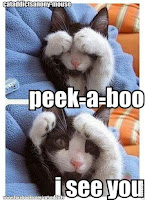My book blogger friend Helen marched for science on Earth Day, holding a sign that says:
Science, not ignorance
Click to enlarge the photo and see the yellow sign in the middle:
Science, not silence
And the white sign in the middle:
Defiance for science
Under Helen's sign I can read one that says, "Bill Nye is my Hero!" Good for you, Helen and everyone else who marched that day!Books
Books I've completed since my last Sunday Salon post three weeks ago:
32. Stuffocation: Why We've Had Enough of Stuff and Need Experience More Than Ever ~ by James Wallman, 2013, economics, 7/10
"The runaway success of consumerism is now not only causing what may be irreversible climate change, for instance, but also, which is perhaps worse, the greatest extinction of plant and animal species since the dinosaurs died out" (loc. 764).33. As the Poppies Bloomed: A Novel of Love in a Time of Fear ~ by Maral Boyadjian, 2015, fiction (Turkey/Anatolia), 9/10
"The Turkish government had separate laws for the Christian citizens than for the Muslim" (p. 15).34. Daddy's Girl ~ by Lisa Scottoline, 2007, fiction (Pennsylvania), 9/10
"They're law students. They should be interested in justice." "No, they're interested in law, and there's a difference" (p. 10).35. A Weekend Getaway ~ by Karen Lenfestey, 2014, fiction (Indiana), 9/10
"You need to balance planning for tomorrow with enjoying what today has to offer" (p. 283).36. The Other Queen ~ by Philippa Gregory, 2008, fiction (Great Britain), 9/10
"She [Queen Elizabeth I] and her archadvisor Cecil have such suspicious, embittered minds that they have imagined their own undoing and so brought it about. Like fearful, suspicious people always do, they have dreamed the worst and made it real" (p. 157).37. The Muralist ~ by B. A. Shapiro, 2015, fiction (the United States and France), 9/10
"How can we have fallen so quickly into such suspicion and fear?" (p. 396).
"Alizée taught me that just because there aren't any objects in a painting, that doesn't mean there isn't a subject. She said you're not supposed to recognize what's in it as much as feel the artist's emotion" (p. 302).38. The Chamberlain Key: Unlocking the God Code to Reveal Divine Messages Hidden in the Bible ~ by Timothy P. Smith, 2017, religion, 8/10
"...Genesis 30:20-23 ... was the only place in the Scriptures that displayed a highly improbable biographical connection to me and my family (my father having six sons and a daughter and I also having six sons and a daughter)" (p. 183).Bloggers gather in the Sunday Salon — at separate computers in different time zones — to talk about our lives and our reading.
"When some Jewish communities in Europe were compelled to convert their synagogues into Catholic churches during the Inquisition, they replaced the Torah ark with a statue of the Virgin Mary to represent the ark, or physical vessel, of the Word of God" (p. 204).


















